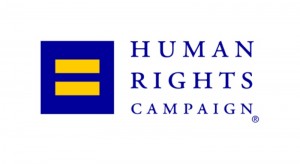Family Medical Leave Act Rule Change Impacts Married Same-Sex Couples
Post originally appeared on HRC Blog by Stephen Peters, Cross-posted with permission. Read the original here.
 On February 23, HRC praised the Department of Labor (DOL)announcement that a final rule change to the Family and Medical Leave Act (FMLA) will be issued on February 25 impacting legally married same-sex couples living in non-marriage equality states. Because of the Supreme Court’s decision in the Windsor case and DOL’s change from a “state of residence” rule to a “place of celebration” rule concerning marriage recognition, the announcement states: “The Final Rule amends the regulatory definition of spouse under the FMLA so that eligible employees in legal same-sex marriages will be able to take FMLA leave to care for their spouse or family member, regardless of where they live. This will ensure that the FMLA will give spouses in same-sex marriages the same ability as all spouses to fully exercise their FMLA rights.”
On February 23, HRC praised the Department of Labor (DOL)announcement that a final rule change to the Family and Medical Leave Act (FMLA) will be issued on February 25 impacting legally married same-sex couples living in non-marriage equality states. Because of the Supreme Court’s decision in the Windsor case and DOL’s change from a “state of residence” rule to a “place of celebration” rule concerning marriage recognition, the announcement states: “The Final Rule amends the regulatory definition of spouse under the FMLA so that eligible employees in legal same-sex marriages will be able to take FMLA leave to care for their spouse or family member, regardless of where they live. This will ensure that the FMLA will give spouses in same-sex marriages the same ability as all spouses to fully exercise their FMLA rights.”
“No legally married same-sex couple should be denied their federal family leave rights simply because they happen to live in a state that disrespects their marriage,” said HRC Government Affairs Director David Stacy. “Until the Supreme Court settles the issue of full nationwide marriage equality this summer, fairness and equality – and the Supreme Court’s decision in the Windsor case – demanded this important change. We applaud the Obama Administration for continuing to ensure all legally married couples have access to the same federal rights, protections, and privileges that come with marriage wherever possible.”
The Department of Labor also provided the following major features of the final rule:
-
“The Department has moved from a ‘state of residence’ rule to a ‘place of celebration’ rule for the definition of spouse under the FMLA regulations. The Final Rule changes the regulatory definition of spouse in 29 CFR §§ 825.102 and 825.122(b) to look to the law of the place in which the marriage was entered into, as opposed to the law of the state in which the employee resides. A place of celebration rule allows all legally married couples, whether opposite-sex or same-sex, or married under common law, to have consistent federal family leave rights regardless of where they live.
-
The Final Rule’s definition of spouse expressly includes individuals in lawfully recognized same-sex and common law marriages and marriages that were validly entered into outside of the United States if they could have been entered into in at least one state.”
Generally, the Obama Administration has advanced a broad implementation of the Supreme Court’s decision in the Windsor case, however, there are a few federal areas, such as social security benefits, veterans benefits, and copyright ownership in which married same-sex couples in non-marriage equality states remain at risk due to discriminatory language in the statutes governing these areas.
During the open comments period last year, HRC collected 19,351 comments in support of this change and submitted them to the Department of Labor.
Photo by Shutterstock/Melvin Dyson

